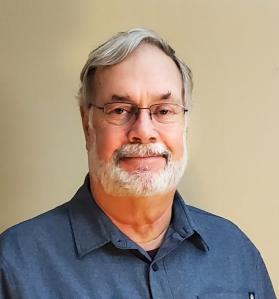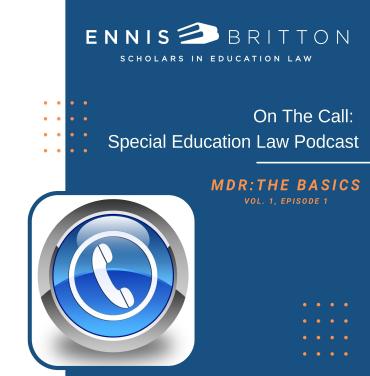Cincinnati
Sunshine Cases in
1714 West Galbraith Rd
Cincinnati, OH 45239 (513) 421-2540
Columbus 300 Marconi Blvd, Suite 308 Columbus, OH 43215 (614) 705-1333
Cleveland 5000 Lombardo Center, Suite 120 Cleveland, OH 44131 (246) 487-6672

Cincinnati
1714 West Galbraith Rd
Cincinnati, OH 45239 (513) 421-2540
Columbus 300 Marconi Blvd, Suite 308 Columbus, OH 43215 (614) 705-1333
Cleveland 5000 Lombardo Center, Suite 120 Cleveland, OH 44131 (246) 487-6672
Sunshine law litigation is constantly ongoing in Ohio’s courts. Recently, three new cases expand our understanding of how open meetings and public records law is applied to public bodies.

Must a public entity teach citizens requesting records how to use its software?
The rst opinion, issued in October 2022, illuminates the limits of a public o ce’s duty to explain how it keeps information when it uses software systems to store and access records.
A citizen, who also is an attorney, requested records from the Animal Welfare League of Trumbull County (AWL) about how many criminal complaints were led by humane o cers in any court for a period of seven years. (State ex rel. Huth v. Animal Welfare League of Trumbull County, Slip Op. No. 2022-Ohio-3582)
The request was denied, because the AWL did not maintain a list of that nature and would have had to search every investigation le to determine whether charges were led. The AWL responded that the request was overbroad, and provided the citizen with the opportunity to revise the request. The AWL suggested limiting the request to specify individual people, addresses, or dates. The citizen led a mandamus action asking for the AWL to explain to her how its records were stored, and requested statutory damages, attorneys’ fees, and court costs.
The court found that the AWL had provided additional information about how to revise the request for the records sought, and that was su cient to meet its duty under the law. The citizen argued that the AWL did not tell her which software it used and how to search the software.
The court explained that the law “…requires a public o ce to explain how its records are organized, so as to help requesters formulate reasonable public records requests. The statute does not require public o ces to o er tutorials on how their software systems work.” The court went on to note that even if the public o ce had explained it, the citizen would have had to have access to the AWL’s les, unless she was planning to ask the AWL to generate reports for her, which it is not required to do. The court denied the request for statutory damages, court costs and attorney’s fees.

The second opinion, issued in April 2022, sheds light on the Sunshine law as it relates to board committees. The facts of the case involve the creation of a land use committee by the Colerain Township Board of Trustees. (State ex rel. Mohr v. Colerain Twp., 2022-Ohio-1109, Ct. App. Hamilton, 2022) The purpose of the land use committee was to develop and make recommendations to the trustees. The trustees appointed seven voting and two nonvoting members, consisting of one trustee, a board of zoning appeals member, a zoning commission member, and others not holding public o ce.
Township planning sta assisted the committee, leading discussion, developing the nal document, and engaging with the committee members via email. The committee met informally, did not announce the meetings to the public, did not take roll call and took no votes or minutes. The committee also considered over six months of work in person and interacted via email about a wide range of township land use issues and developed a land use plan and policy recommendations.
The township trustees were sued in mandamus, alleging a violation of the Open Meetings Act for failing to conduct the business of the committee in public and taking minutes. Once the lawsuit was led, the trustees disbanded the committee and did not vote on the land use plan. The trial court found a violation of the OMA and the trustees appealed.
The 1st District Court of Appeals in Hamilton County agreed with plainti s, nding that the Sunshine Law requires board committee meetings to be announced and open to the public, with minutes available for review. This is because board committees are subject to the OMA.
The court of appeals noted that it made no di erence whether the committee had not taken votes. The trustees referred public business to the committee to consider and the committee deliberated and reached consensus in private. The court also found that a quorum of the body met and deliberated reviewing evidence such as pictures, emails, and testimony about the meetings of the body. All these factors resulted in a nding that a majority of the committee met to discuss public business, and in doing so, violated the OMA.
The email correspondence of committee members was likewise found to be a violation of the Sunshine Law; deliberation by a majority of the members outside of a public meeting using serial electronic communication is a violation of the law. The court a rmed the trial court’s decision invalidating the land use plan, ordering an injunction for the trustees not to violate the Sunshine Law again, nding a violation because the committee did not issue public notice of its meetings, hold the meetings in front of the public, and keep minutes. The trustees were ordered to pay statutory damages, attorneys fees and costs.
The last case in this tour of recent Sunshine Law litigation ends with frequent public records litigator bringing an action against the Ohio Township Association Risk Management Authority (OTARMA), its third-party claims handling entity, Public Entity Risk Management Services of Ohio (PERSO), and its law rm. (State ex rel. Ames v. Baker, Dublikar, Wiley & Mathews et al., 2022-Ohio-0170, Ohio Supreme Court, 2022).
Decided in November 2022, the Ohio Supreme Court considered the question of whether the unredacted invoices of the law rm advising PERSO, the third-party claims service, were public records. Plainti had previously sued the Rootstown Township Trustees for violations of the Sunshine Law three times, and the trustees had made claims with the OTARMA. The law rm provided legal services to PERSO in connection with that litigation. Plainti sought the unredacted invoices outlining the services provided by the law rm for those cases.
The law rm provided the invoices, but redacted the narrative portion describing the services provided, claiming that was protected by attorney-client privilege. The court of appeals agreed and dismissed the suit, and Plainti appealed.
Applying the quasi-agency test applied in previous cases, the Ohio Supreme Court noted that private entities may be subject to public records law when a public entity has delegated a duty to it, such as defending against lawsuits, and the private entity prepared records to carry out the public o ce’s duties. The court found that PERSO was not immune from a public records lawsuit.
Second, the court remanded the case to the court of appeals, instructing it to conduct an in camera review (i.e., for the court itself to review the invoices in chambers) of the invoices to determine if they contained attorney-client privileged information.
Public entities participating in consortia and/or risk management entities which provide services may be subject to public records requests. This is because the public entity has delegated a duty it has to that entity, bringing the record generated into the ambit of public records law under the quasi-agency test. The court noted previous instances in which the General Assembly changed public records statutes when it disagreed with case law and that it could do the same in the future.
1/20/23 OASPA Winter Camp Basics of Certi ed Negotiations
Hot Topics of Negotiations
Hollie Reedy and Gary Stedronsky presenting
3/9/23 BASA Women in Leadership Conference
Pam Leist & Erin Wessendorf-Wortan presenting
4/19/23 LRP’s Special Education Conference: All Things Autism
Pam Leist presenting

Ennis Britton is pleased to announce Pete Japikse has joined The Ennis Britton Consulting Group, o ering transportation consulting services to the Firm’s clients. Pete is available for transportation consulting assistance including but not limited to T-1 and T-2 training and audit reviews, routing consolidation studies, post-accident procedures, safety issues and help with any of the many technical issues involved in school transportation.
Pete brings over forty years of experience in school transportation services to Ennis Britton and its clients. He has served as a respected resource for Ohio’s public schools, legislators, and government o cials in a number of key roles. Most recently retired from the Ohio School Boards Association, he served as a senior consultant for ten years after retiring from state service as Ohio Department of Education’s Pupil Transportation Director. Pete’s state level service was built on his experience as a public-school transportation administrator for both large and small school districts.
Pete has been recognized for his expertise on the national level in the school bus industry regarding issues such as terrorism awareness, transportation funding, federal rulemaking, and safety issues. Pete is a past president of the National Association of State Directors of Transportation and served a key role in the creation of the American School Bus Council, where he acted as a national spokesperson and co-director. Throughout his career, Pete received numerous awards from di erent organizations, including being nationally recognized as the pupil transportation administrator of the year in 2010 by School Bus Fleet magazine.
Pete has presented to school districts and associations on transportation administration, safety, rules and regulations, and best practices in pupil transportation and authored numerous transportation articles. He has created transportation administrator training programs that provide career training and guidance for school transportation o cials.


The Special Education Team of Ennis Britton is pleased to announce the rollout of our new podcast “On the Call”. Each episode focuses on a real-life special education scenario you may have encountered or might bump into very soon. Ennis Britton attorneys Jeremy Ne and Erin Wessendorf - Wortman take the call and then discuss applicable cases and laws related to the scenario presented.

The rst episode covers the basics of a Manifestation Determination Review or “MDR”. They review a recent case in Connecticut that has implications for MDR meetings and highlights what you should consider related to the behavior which resulted in the MDR and the importance of digging into the details as you prepare for the meeting.
Listen to the first volume of the podcast here. Look for new episodes on the second and fourth Tuesday of the month.

As we head into a new year, many joint vocational school districts are welcoming new members to their governing boards. This can be an exciting time, with opportunities to meet and work with fresh faces and new ideas. This might also present some unanticipated challenges regarding appointment of new members, thanks to somewhat “recent” changes in the law over the past few years that have modi ed the quali cations for an individual to serve on a joint vocational school district board.
Back in 2017, the legislature amended the language in the statute which governs the appointment and quali cations of JVS board members. Under the amended version of R.C. 3311.19, an individual who is a current elected member of the appointing school district board of education is no longer required to have speci c business and industry experience or knowledge. They simply must be current members of their appointing board.
You may recall that a previous version of the law amended in 2013 declared a current school board member was required to “have experience as chief nancial o cers, chief executive o cers, human resources managers, or other business, industry, or career counseling professionals who are quali ed to discuss the labor needs of the region with respect to the regional economy” in order to serve. Those individuals were further expected to represent employers in the region with knowledge of the state’s workforce needs. Again, now they simply must serve on the appointing board and if they do not, meet alternative quali cations.
There is a second group of candidates who are not currently serving on the appointing school district’s board but who qualify for service if they have “experience or knowledge regarding the labor needs of the state and region with an understanding of the skills, training, and education needed for current and future employment opportunities in the state.” Well appointing new members, preference may be given to an individual who serves on the JVS business advisory council but this is not a requirement.
The statutory language provides broader discretion to an appointing board of education in selecting the JVS board representative for their district than were found in the 2013 amendments. It also means that boards may be drawing from a more diverse pool of candidates, some of whom may have little or no experience serving on a school board or even in a public o ce. As a result, it is important to prioritize training for new JVS board members to onboard them more quickly in areas such as Sunshine Law compliance, board meeting rules of order, the structure and function of the JVS as an entity, its mission, vision, services and programs, policies and more.
Joint Vocational Schools should also communicate with appointing districts so they are aware of the quali cation requirements for the appointment of new JVS members. By appointing an individual, the appointing school boards are expected to be aware of the JVS board member quali cations and by their action to appoint, are certifying that the appointees meet them.
The nal change in the law from 2017 worth mentioning is the elimination of term limits. Under prior law, JVS board members could serve no more than two consecutive three-year terms. This limit no longer exists, and members may presumably serve an unlimited number of three-year terms.
Ennis Britton has assembled a team of attorneys whose collective experience provides solutions for a variety of issues that school districts may encounter. From sensitive labor negotiations to complex real estate transactions, our legal experts o er the resources to ensure you remain compliant. We provide full legal representation for Ohio schools including:
• Labor & Employment Law
• Student Education & Discipline
• Board Policy & Representation
John Britton jbritton@ennisbritton.com
William M. Deters II wmdeters@ennisbritton.com J. Michael Fischer jm scher@ennisbritton.com
Ryan M. LaFlamme rlafalmme@ennisbritton.com
Pamela A. Leist pleist@ennisbritton.com
• Construction & Real Estate
• Workers’ Compensation
• Special Education
• School Finance

Robert J. McBride rmcbride@ennisbritton.com
C. Bronston McCord III cbmccord@ennisbritton.com
Jeremy J. Ne jne @ennisbritton.com
Hollie Reedy hreedy@ennisbritton.com
Giselle Spencer gspencer@ennisbritton.com
Gary T. Stedronsky gstedronsky@ennisbritton.com
Erin Wessendorf-Wortman ewwortman@ennisbritton.com